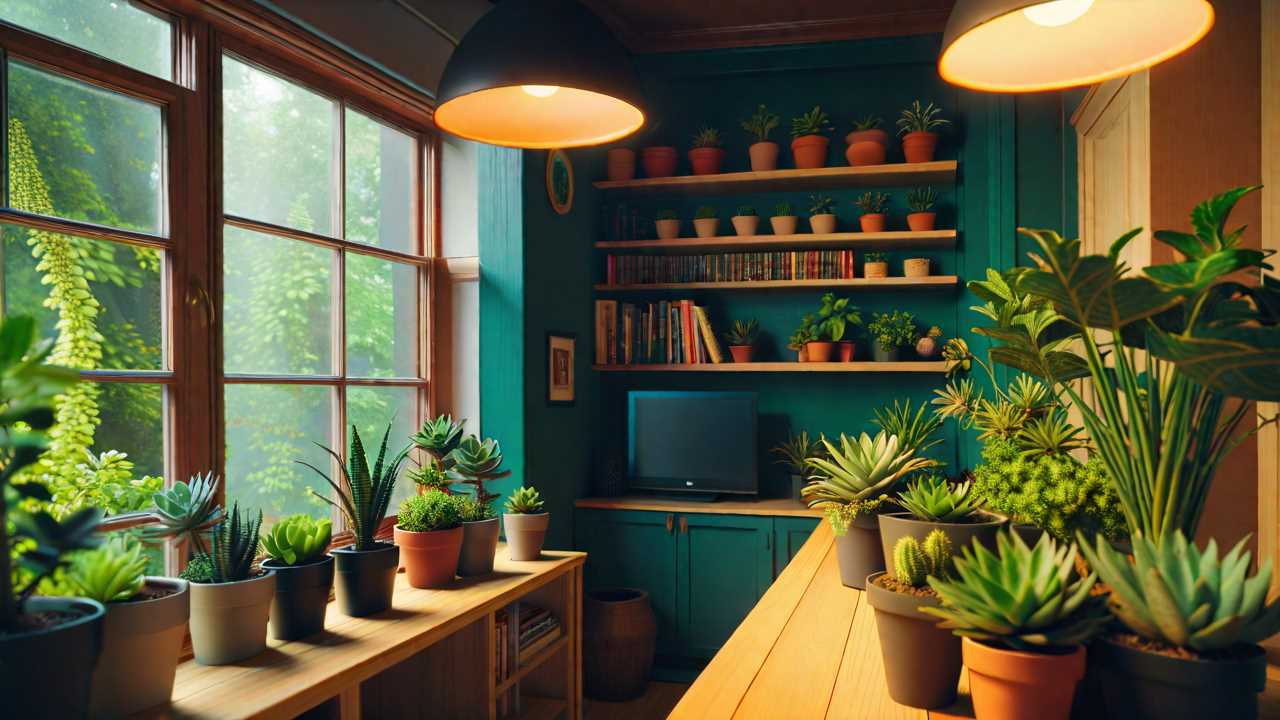
If you're looking to add a touch of greenery to your small apartment, starting an indoor garden could be the perfect solution. But how can you create a flourishing oasis within limited space constraints? By making strategic plant choices, optimizing light sources, and equipping yourself with the right tools, you can turn your compact living space into a thriving botanical haven. Ready to transform your apartment into a green paradise?
Choosing the Right Plants
When starting an indoor garden in a small apartment, you should carefully select plants that thrive in low light conditions and require minimal space to grow effectively. Opt for low-maintenance plants like snake plants, pothos, or spider plants, as they can survive in various light levels and don't need frequent watering. These plants are perfect for beginners and can add a touch of greenery to your living space without demanding too much attention.
Consider adding a ZZ plant or a peace lily to your indoor garden. These plants are resilient and can thrive in low light environments, making them ideal for apartments with limited natural light. Additionally, they don't require constant watering, making them convenient choices for busy individuals.
For a pop of color, choose a begonia or a prayer plant. These plants can tolerate low light conditions and add a vibrant touch to your indoor garden. Just make sure you place them near a window to provide them with some indirect sunlight.
Maximizing Space and Light
To maximize space and light in your small apartment for an indoor garden, strategically position your plants near windows or under artificial grow lights. Utilize windowsills, shelves, or hanging planters to make the most of natural light.
South-facing windows typically receive the most sunlight throughout the day, making them ideal for light-loving plants like herbs or succulents. If your apartment lacks sufficient natural light, consider investing in full-spectrum grow lights to supplement the light requirements of your plants.
To create more space for your indoor garden, opt for vertical gardening solutions such as wall-mounted planters or tiered shelves. These options not only save space but also provide adequate light exposure to your plants.
Additionally, choose compact plant varieties or consider growing herbs and microgreens, which can thrive in small pots or trays.
Indoor gardening requires a few essential tools to help you successfully care for your plants in a small apartment. To start, invest in a watering can with a narrow spout to ensure controlled watering without making a mess. A good pair of pruning shears will come in handy for trimming dead leaves and encouraging healthy growth. Additionally, a small hand trowel or fork will assist you in transplanting and repotting your plants when needed.
Monitoring the humidity levels in your apartment is important for your indoor garden's success. Consider purchasing a hygrometer to keep track of humidity levels, making sure your plants thrive in the right environment. A basic misting spray bottle will also be useful for plants that require higher humidity levels.
Lastly, don't forget to have a small rake or hand cultivator to help loosen and aerate the soil in your plant containers. These essential tools will set you up for a successful indoor garden in your small apartment.
Maintenance and Care Tips
Proper maintenance and care are essential for maintaining the health and vitality of your indoor garden in a small apartment. To keep your indoor garden thriving, it's important to water your plants appropriately. Overwatering can lead to root rot, while underwatering can cause wilting. Check the moisture level of the soil regularly by inserting your finger about an inch deep; water when it feels dry.
Light is another critical factor. Make sure your plants receive adequate light according to their specific needs. Rotate your plants periodically to ensure even growth on all sides.
Keep an eye out for pests and diseases. Inspect your plants regularly for any signs of infestation or illness, such as yellowing leaves or unusual spots. If you notice any issues, take prompt action to address them.
Lastly, regular pruning and fertilizing can help maintain the health of your indoor garden. Trim off dead or yellowing leaves and fertilize your plants as needed to provide essential nutrients. By staying on top of these maintenance tasks, you can enjoy a flourishing indoor garden in your small apartment.
Frequently Asked Questions
Can I Use Artificial Lighting for My Indoor Garden?
You can definitely use artificial lighting for your indoor garden. LED grow lights are energy-efficient and mimic natural sunlight, promoting plant growth. Make sure the light intensity and duration match your plants' needs to thrive indoors.
How Do I Prevent Pests in My Indoor Garden?
To keep pests away from your indoor garden, inspect plants regularly for signs of infestation. Introduce natural predators like ladybugs. Maintain cleanliness and proper watering to discourage pests. Adopt a vigilant approach to protect your plants.
Should I Be Concerned About Humidity Levels?
You should monitor humidity levels closely in your indoor garden. High humidity can lead to mold and mildew, while low humidity can cause issues for certain plants. Aim for a range of 40-60% for best growth.
Can I Grow Herbs and Vegetables Indoors?
Growing herbs and vegetables indoors is like having a mini farm in your home. With proper lighting, soil, and care, you can enjoy fresh produce year-round. Consider compact varieties suited for indoor conditions.
What Are the Best Ways to Recycle or Compost in a Small Space?
To recycle or compost in a small space, consider a worm bin for composting. Use airtight containers for food scraps and a small composter for yard waste. Utilize a balcony or countertop for recycling bins. Stay organized to maximize efficiency.
 SportsHollywoodLifestyleFashionHome & GardenTrendsPrivacy PolicyTerms And Conditions
SportsHollywoodLifestyleFashionHome & GardenTrendsPrivacy PolicyTerms And Conditions
